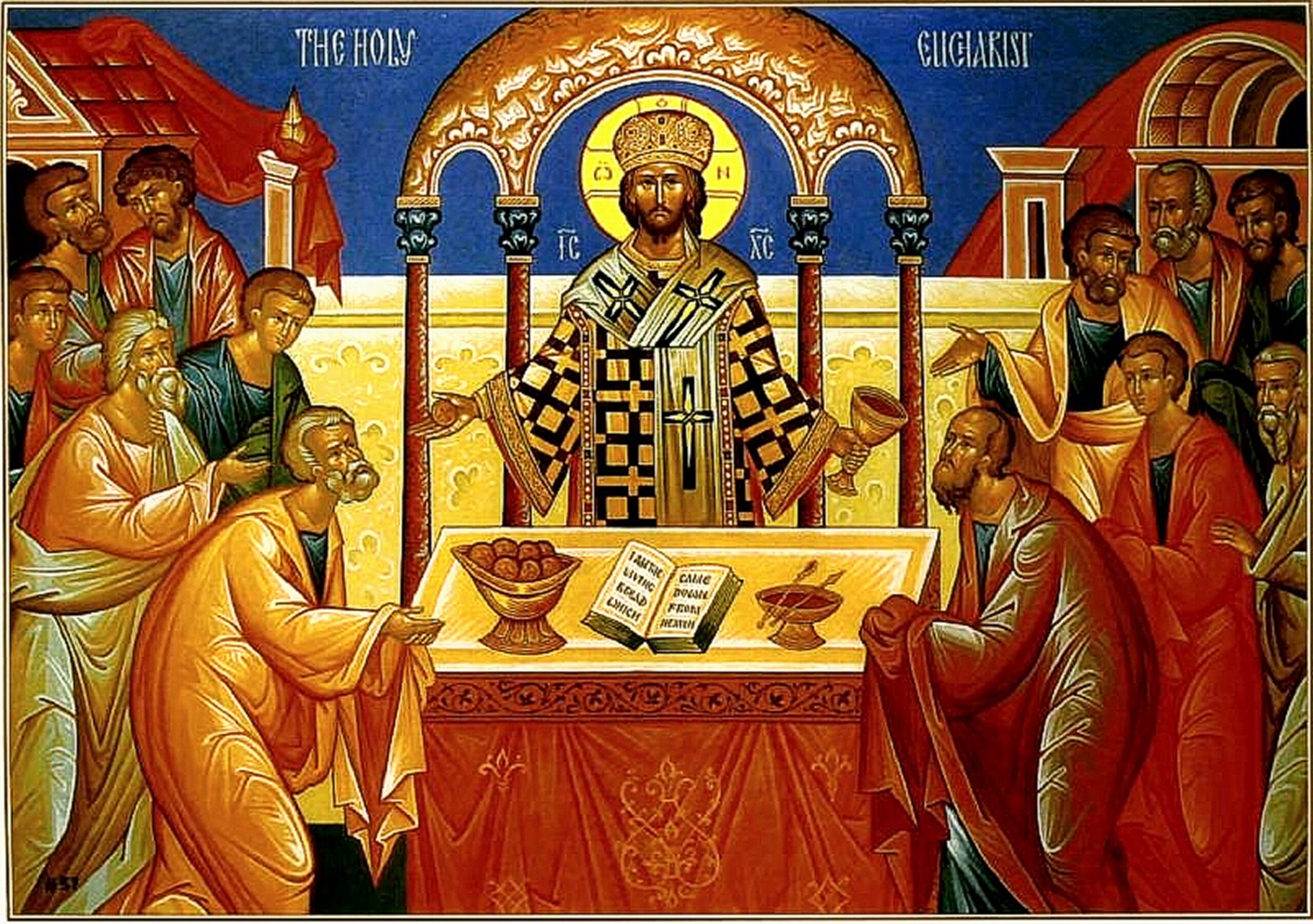Accept us as we draw near to Your holy altar, according to the multitude of Your mercy, that we may be worthy to offer You this spiritual sacrifice without the shedding of blood, for our sins and for the transgressions of Your people. Grant that, having accepted this sacrifice upon Your holy, heavenly and spiritual altar as an offering of spiritual fragrance, You may in return send down upon us the grace of Your Holy Spirit.
—
The sacrifice acceptable to God is a broken spirit; a broken and contrite heart, O God, Thou wilt not despise.
Psalm 51:17
In these still introductory reflections on the Divine Liturgy of St. Basil, having just reflected on a summary of the Holy Trinity, this reflection introduces the concept of sacrifice, that is prominent not only throughout the Bible, but in our Orthodox Christian life. The Greek word for “sacrifice” is “thisia” which refers to one of two things—either the ritual blood offerings required in the Old Testament, or in more general terms, an offering to God based on His terms. (Taken from https://biblehub.com/greek/
As we will learn in the next reflection, the concept of sacrifice appears very early on in Scripture, and before the time of Christ, generally required an offering of blood. With the “sacrifice” by His own blood on the cross, our “sacrifices” now do not require the shedding of blood. Christ shed His blood for all of us, for all time now.
The concept of sacrifice to God (or even to a god) was based on either the commandment of God (made through the Law given to Moses) or in order to incur the good favor of God. This second instance was influenced by the many gods that non-Jewish people were worshipping. Many of them thought that their gods would “perform” what the people wanted if the people sacrificed to their god. Many thought that their god would make things go their way if only he could be pleased with the offered sacrifice. At times the sacrifice would not only be offered to gratify a god, but to appease an angry god, to avoid his wrath.
The idea of sacrifice involves giving up something, but also doing it with love. I make a sacrifice of time to write a message each day. I do it with love and also with joy. Because if I didn’t do it with these things, these message might be received with guilt, rather than with joy.
Our God is not an angry God. We do not need to appease Him. In Psalm 51:17, we read that “the sacrifice acceptable to God is a broken spirit; a broken and contrite heart, O God, Thou wilt not despise.” God doesn’t want our things—i.e. our animals as in the Old Testament. He wants US. He wants our hearts. He wants us to offer ourselves to Him with joy and with love. Just as He offered Himself to us to the point of laying down His life for us.
As the prayer from the Liturgy continues, we ask the Lord to accept us as we draw near to the Holy Altar, that we may be even worthy to offer our sacrifice, which no longer involves the shedding of blood. We pray that the Lord will not only accept our sacrifice upon His heavenly altar, but that in return, He will send down upon us the grace of the Holy Spirit.
The sacrifice we offer is not for God’s benefit. It is for ours. When we look back at the miracle of the feeding of the five thousand, as told in the Gospels, we remember that the multitude was fed with five loaves and two fish that were offered by the people. Of course, Jesus could have created something out of nothing, as He is God. He accepted in this instance, a sacrifice of five loaves and two fish. We aren’t told in the story if they came from one person or more than one person. However, someone (or some people) had a small amount of food and decided to sacrifice this food to the Lord, in order to feed the people, as unlikely as that might have sounded—i.e. how could five loaves and two fish feed five thousand men, besides women and children? Yet, when the sacrifice was made and the “gifts” offered to Christ, He multiplied them in an unbelievable way, so that probably close to 15,000 people ate and were stuffed and twelve large baskets were filled with leftovers.
We are praying through these words that what we offer to the Lord will be blessed back upon us by receiving the grace of the Holy Spirit. We have reflected many times that grace is this intangible quality that comes from the Holy Spirit which “heals what is infirm and completes that which is lacking”(https://www.goarch.
